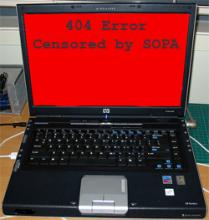Harold Feld Examines The Meaning Behind The Verizon/SpectrumCo/Cox Deal
Several months ago, we wrote this post but it got lost in the system. We think it still worthwhile, so here it is.
The word "cartel" drums up many negative annotations - drug cartels, oil cartels. Never anything positive, such as bunny cartels or chocolate cartels. Harold Feld (of Public Knowledge) explains the emergence of another cartel in My Insanely Long Field Guide To The Verizon/SpectrumCo/Cox Deal, on his Tales of the Sausage Factory blog. This is great tutorial on how the deal came about and what it can mean for the future of broadband.
Rather than chocolate, drugs, oil, or bunnies, the product in question is telecommunications services. At the heart of the cartel are the familiar names: Verizon, Cox, and SpectrumCo. The latter being a consortium of Comcast, Time Warner Cable, and Bright House. All the big hitters in telecom are involved in a way that is veiled, secretive, and not good for competition.
"It's almost as if your companies got in a room together, and you agreed to throw in the towel and stop competing against each other," Sen. Al Franken to representatives from Verizon and the cable companies at the Senate Judiciary Subcommittee on Antitrust, Competition Policy, and Consumer Rights, March 21, 2012.
Feld's investigation begins with the licensing and collecting of spectrum by SpectrumCo but ends with a more practical look at how these big hitters have decided that it is better to join forces than to compete. Side agreements, secretive multi-layered entities, and threaded loopholes keep the FCC at bay. This begins as an article about telecommunications, but quickly expands into an antitrust primer. The most alarming facet of this situation is that the product in question is information.
Joel Kelsey of Free Press testified at that same committee, warning how this deal will compromise access, quality, and affordability to broadband in America and how drive us further behind the rest of the world.
Update:
On August 16, 2012, the Department of Justice announced that it approved the deal with changes. Citing:


